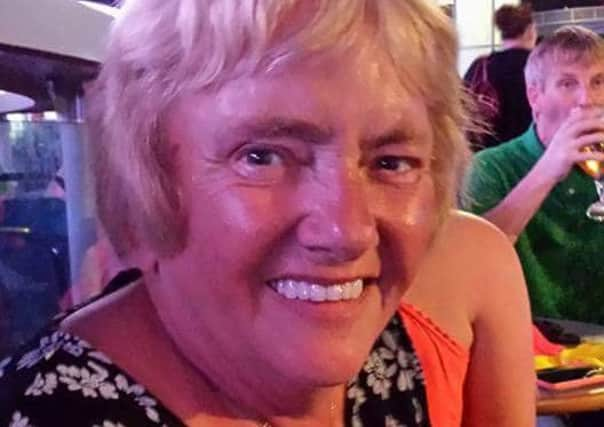Former pub landlady had to teach herself to talk after suffering stroke


Hartlepool stroke survivor Dot Guttridge, 64, is one of the hundreds of people living with communication difficulties after a stroke.
Dot had a stroke 22 years ago, when she was just 42 and working as a pub landlady.
Advertisement
Hide AdAdvertisement
Hide AdAs well as memory problems and weakness in her right side, Dot was left with severe aphasia and she could only say two words.
She couldn’t write and would stay up until the early hours of the morning copying out the alphabet and trying to relearn how to say her children’s names.
After years of determination to slowly build up her vocabulary to around 500 words, Dot now frequently travels abroad alone and finds different ways to communicate while she is away, including using hand gestures.
Dot said: “After my stroke I was depressed and didn’t want to be here anymore. I found it so frustrating not to be able to speak to my family, but my children and grandchildren motivated me to try and get better. “I realised how patient people were with me and gradually my confidence built.
Advertisement
Hide AdAdvertisement
Hide Ad“Now I can say around 500 words and I’m travelling the world on my own.”
Dot’s daughter Tracy Bushnall was inspired to work for the Stroke Association after seeing the effects of her mum’s stroke first hand.
Now a care support and welfare coordinator for the charity, Tracy supports other stroke survivors and families who have been affected by stroke.
Tracy said: “When my mum’s stroke was initially diagnosed, we were told not to expect much for her quality of life.
Advertisement
Hide AdAdvertisement
Hide Ad“She was very low after her stroke and it was a really hard time for everyone, but she’s so motivated and has come a long way.
“Working for the Stroke Association, I support other people like my mum who have aphasia after stroke and I’m able to talk about the road to recovery from first-hand experience.
“However it’s also helped me to be more patient with my mum, and understand even more about the challenges she has faced.”
The Stroke Association’s Lost for Words campaign aims to raise awareness of the challenges stroke survivors with communication difficulties can face, and help and support available.
Advertisement
Hide AdAdvertisement
Hide AdPeter Moore, regional director at the Stroke Association, said: “After a stroke, around one in three people like Dot have difficulty communicating, which can be both terrifying and isolating. Dot has gone from strength to strength and we’re so proud to hear about her recovery.”
More than 350,000 people in the UK have aphasia, a communication disability which can be caused by stroke. The Stroke Association is urging people to show their support for stroke survivors who are lost for words and make a donation. For more information, visit www.stroke.org.uk/lostforwords.